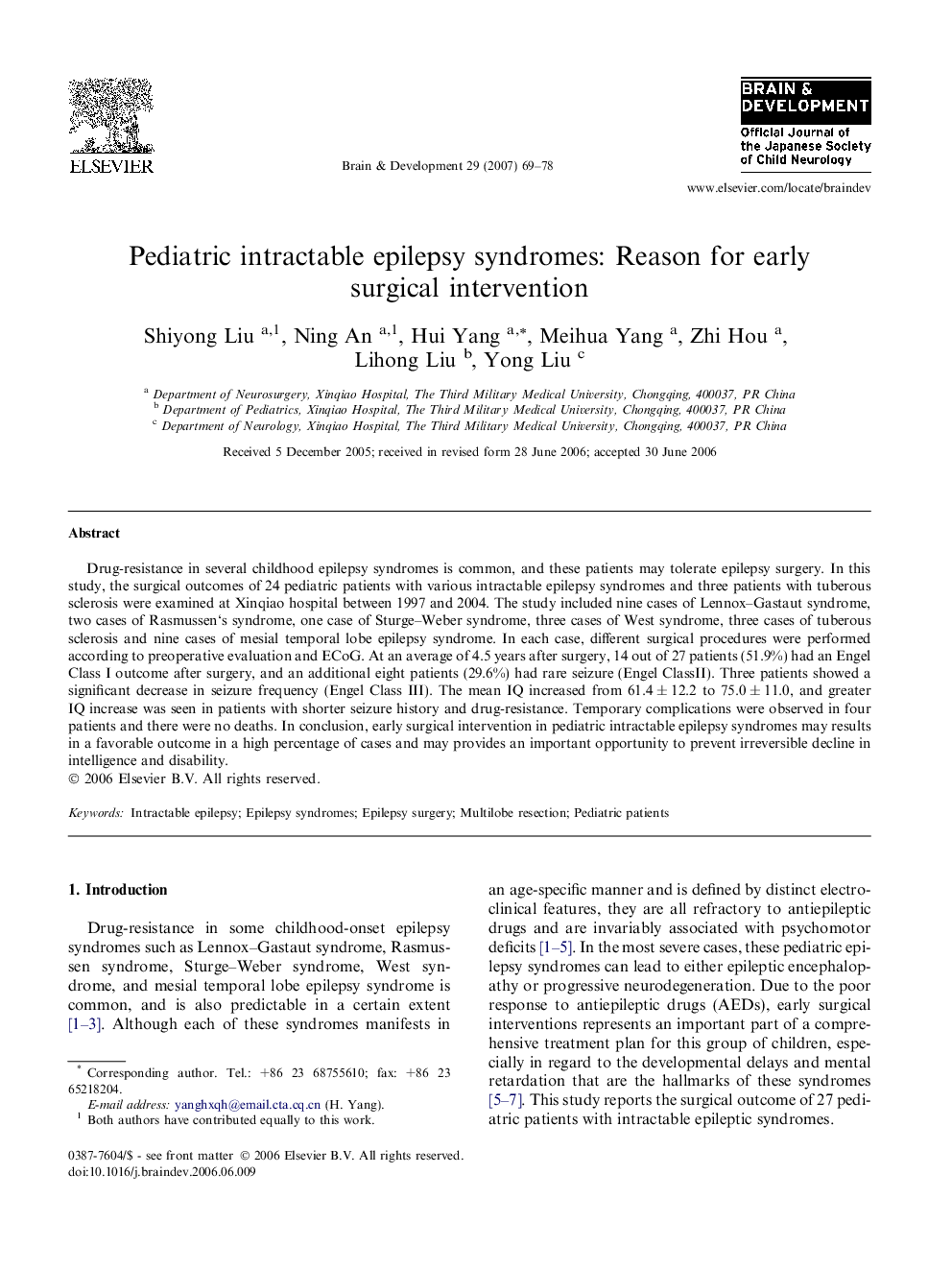| Article ID | Journal | Published Year | Pages | File Type |
|---|---|---|---|---|
| 3038544 | Brain and Development | 2007 | 10 Pages |
Drug-resistance in several childhood epilepsy syndromes is common, and these patients may tolerate epilepsy surgery. In this study, the surgical outcomes of 24 pediatric patients with various intractable epilepsy syndromes and three patients with tuberous sclerosis were examined at Xinqiao hospital between 1997 and 2004. The study included nine cases of Lennox–Gastaut syndrome, two cases of Rasmussen‘s syndrome, one case of Sturge–Weber syndrome, three cases of West syndrome, three cases of tuberous sclerosis and nine cases of mesial temporal lobe epilepsy syndrome. In each case, different surgical procedures were performed according to preoperative evaluation and ECoG. At an average of 4.5 years after surgery, 14 out of 27 patients (51.9%) had an Engel Class I outcome after surgery, and an additional eight patients (29.6%) had rare seizure (Engel ClassII). Three patients showed a significant decrease in seizure frequency (Engel Class III). The mean IQ increased from 61.4 ± 12.2 to 75.0 ± 11.0, and greater IQ increase was seen in patients with shorter seizure history and drug-resistance. Temporary complications were observed in four patients and there were no deaths. In conclusion, early surgical intervention in pediatric intractable epilepsy syndromes may results in a favorable outcome in a high percentage of cases and may provides an important opportunity to prevent irreversible decline in intelligence and disability.
